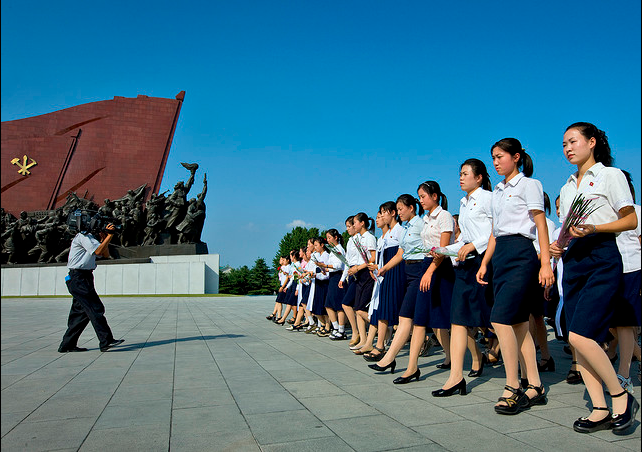I hesitate to use the “E” word again, after all the multiple exchanges of the past few months, but for the present I cannot think of a better one. I remain convinced of the need to engage the DPRK for our benefit as much as for theirs. Ploughing through Victor Cha’s The Impossible State: North Korea, Past and Future, which sets out what seemed to be the alternatives as seen by American policymakers, has left me even more convinced than I was before.
But I want to look at one particular form of engagement, namely cultural engagement in its broadest sense. Three things have brought this to mind. One is the story carried by the London Daily Mail early last month that the London Globe Theatre intends to take its production of “Hamlet” to the DPRK (and many other countries) some time in the next couple of years, which caused a predictable outcry among some readers. Then I was asked by a BBC radio program what I thought of reports that the BBC might provide North Korean television with a number of light entertainment programs, including children’s programs and some comedy shows. And finally, there is the issue of whether the BBC should broadcast in Korean.
I hesitate to use the “E” word again, after all the multiple exchanges of the past few months, but for the present I cannot think of a better one. I remain convinced of the need to engage the DPRK for our benefit as much as for theirs. Ploughing through Victor Cha’s The Impossible State: North Korea, Past and Future, which sets out what seemed to be the alternatives as seen by American policymakers, has left me even more convinced than I was before.
But I want to look at one particular form of engagement, namely cultural engagement in its broadest sense. Three things have brought this to mind. One is the story carried by the London Daily Mail early last month that the London Globe Theatre intends to take its production of “Hamlet” to the DPRK (and many other countries) some time in the next couple of years, which caused a predictable outcry among some readers. Then I was asked by a BBC radio program what I thought of reports that the BBC might provide North Korean television with a number of light entertainment programs, including children’s programs and some comedy shows. And finally, there is the issue of whether the BBC should broadcast in Korean.
Become a member for less
than $5.75 per week.
Unlimited access to all of NK News: reporting, investigations, analysis
The NK News Daily Update, an email newsletter to keep you in the loop
Searchable archive of all content, photo galleries, special columns
Contact NK News reporters with tips or requests for reporting
Get unlimited access to all NK News content, including original reporting, investigations, and analyses by our team of DPRK experts.
Subscribe now
All major cards accepted. No commitments – you can cancel any time.












